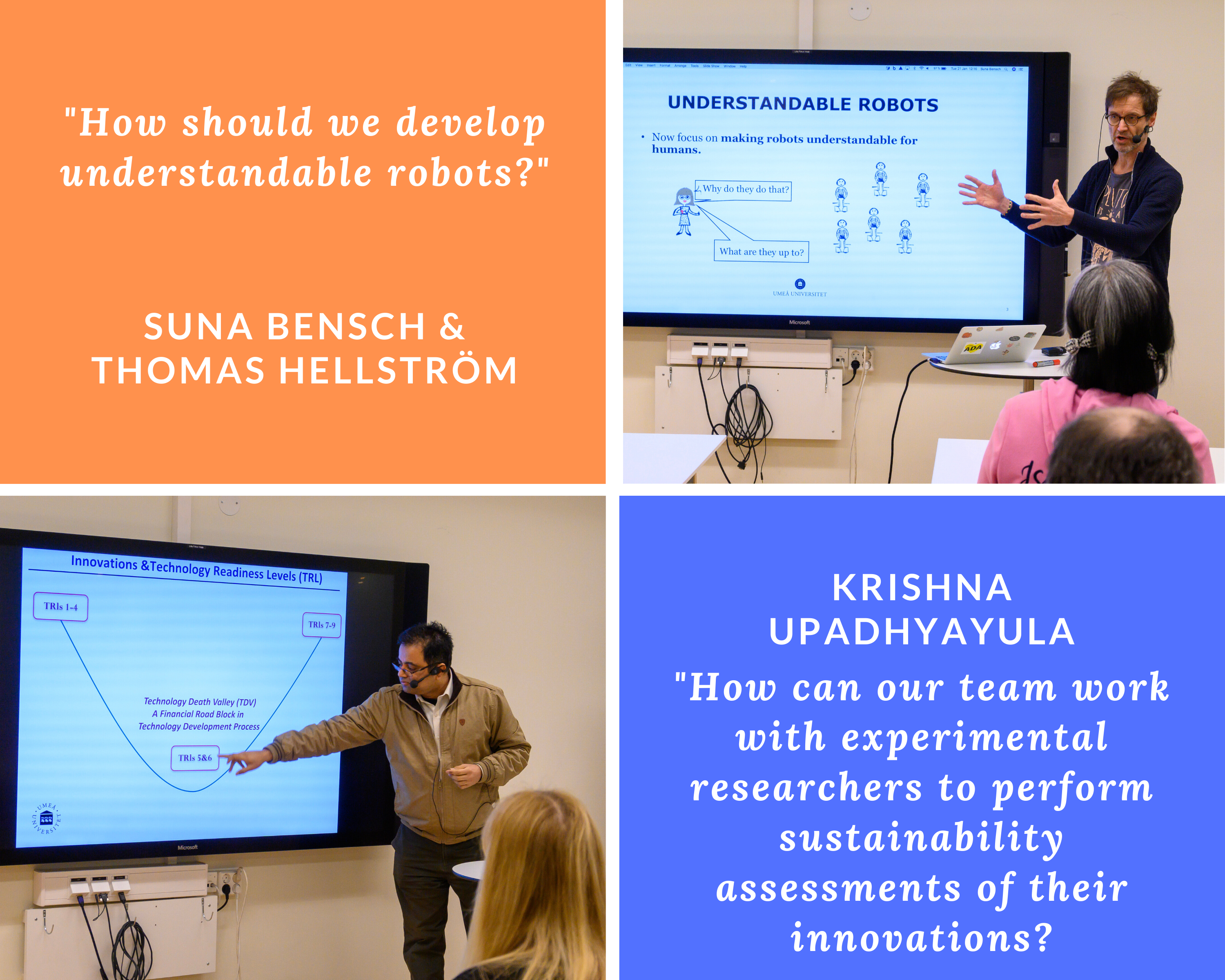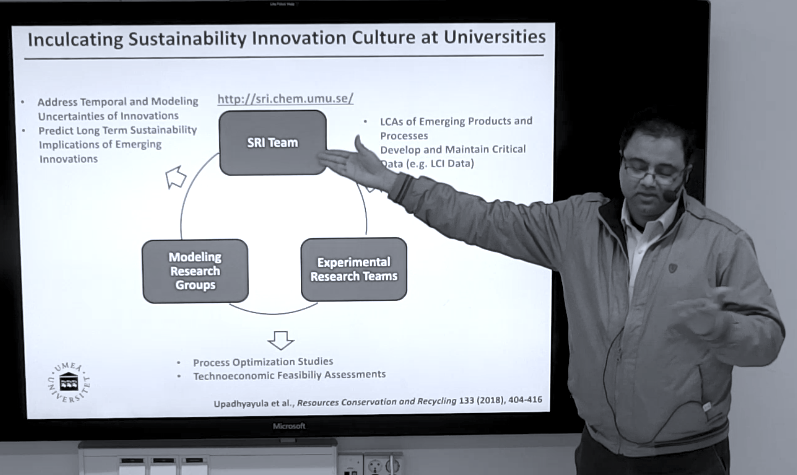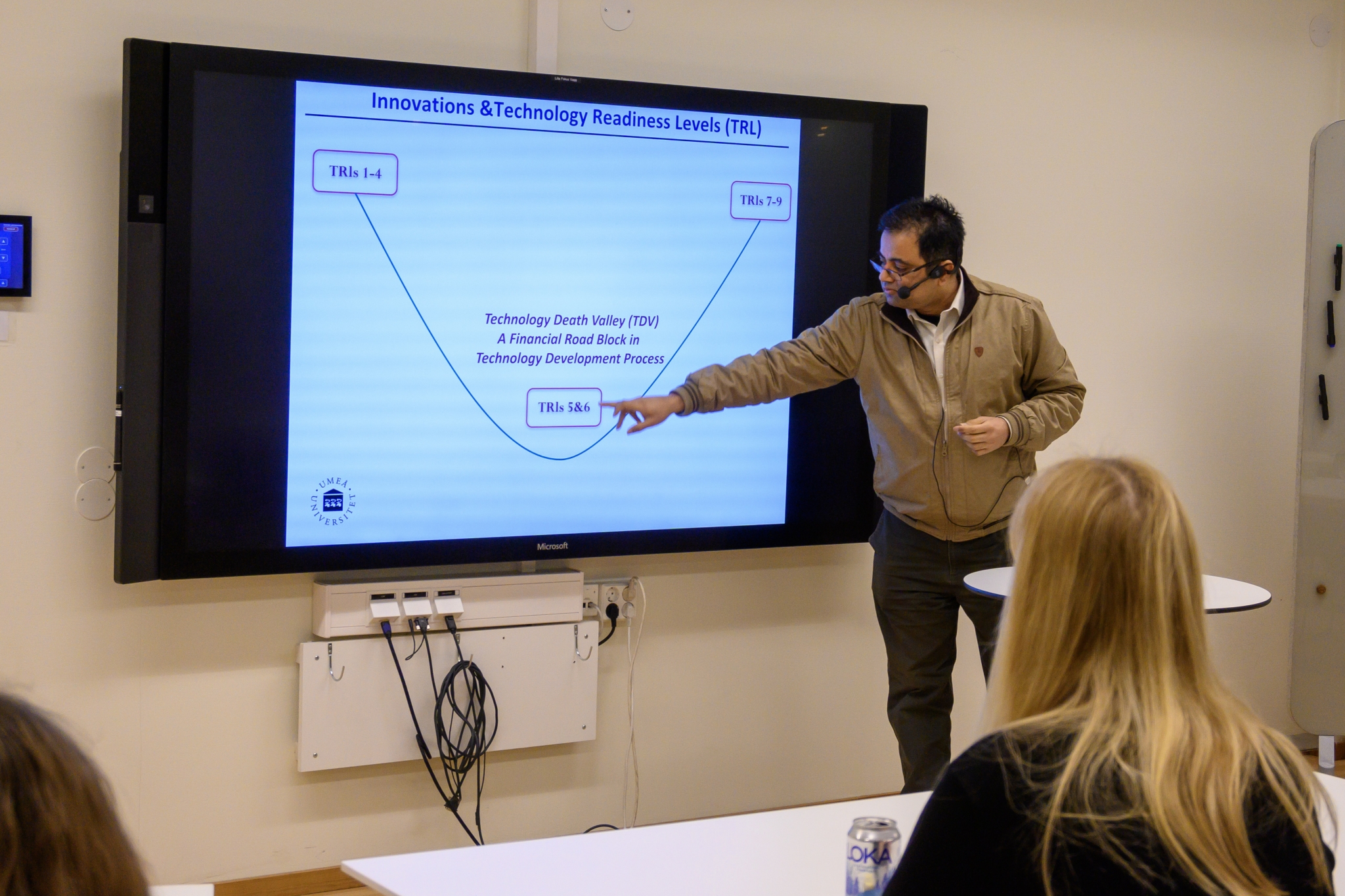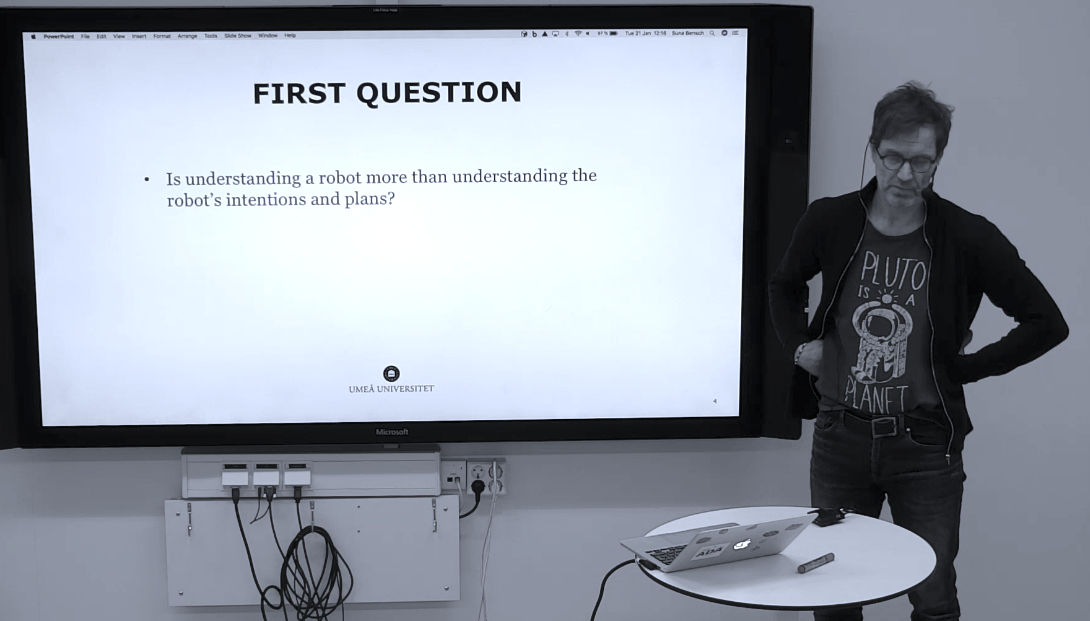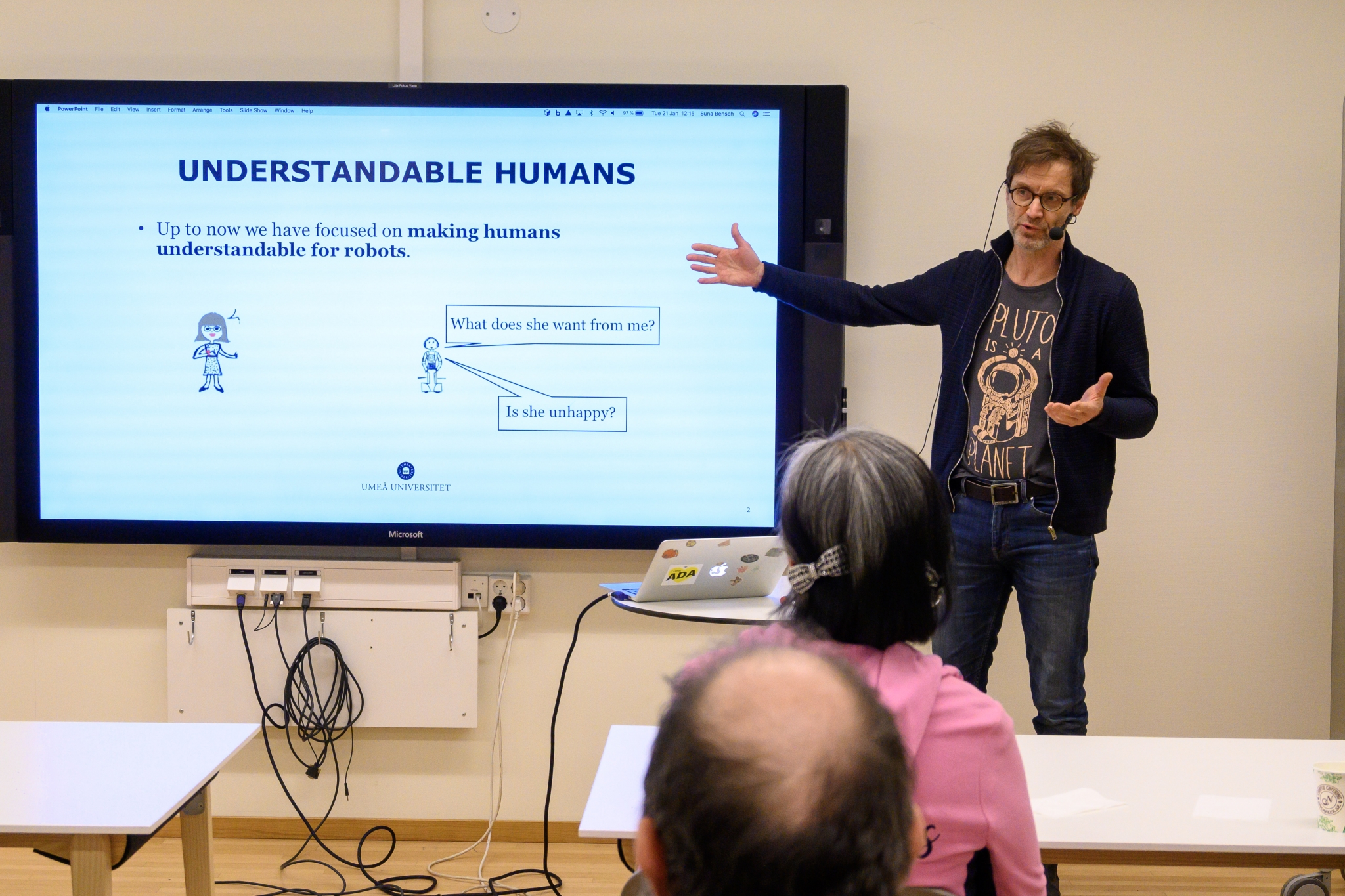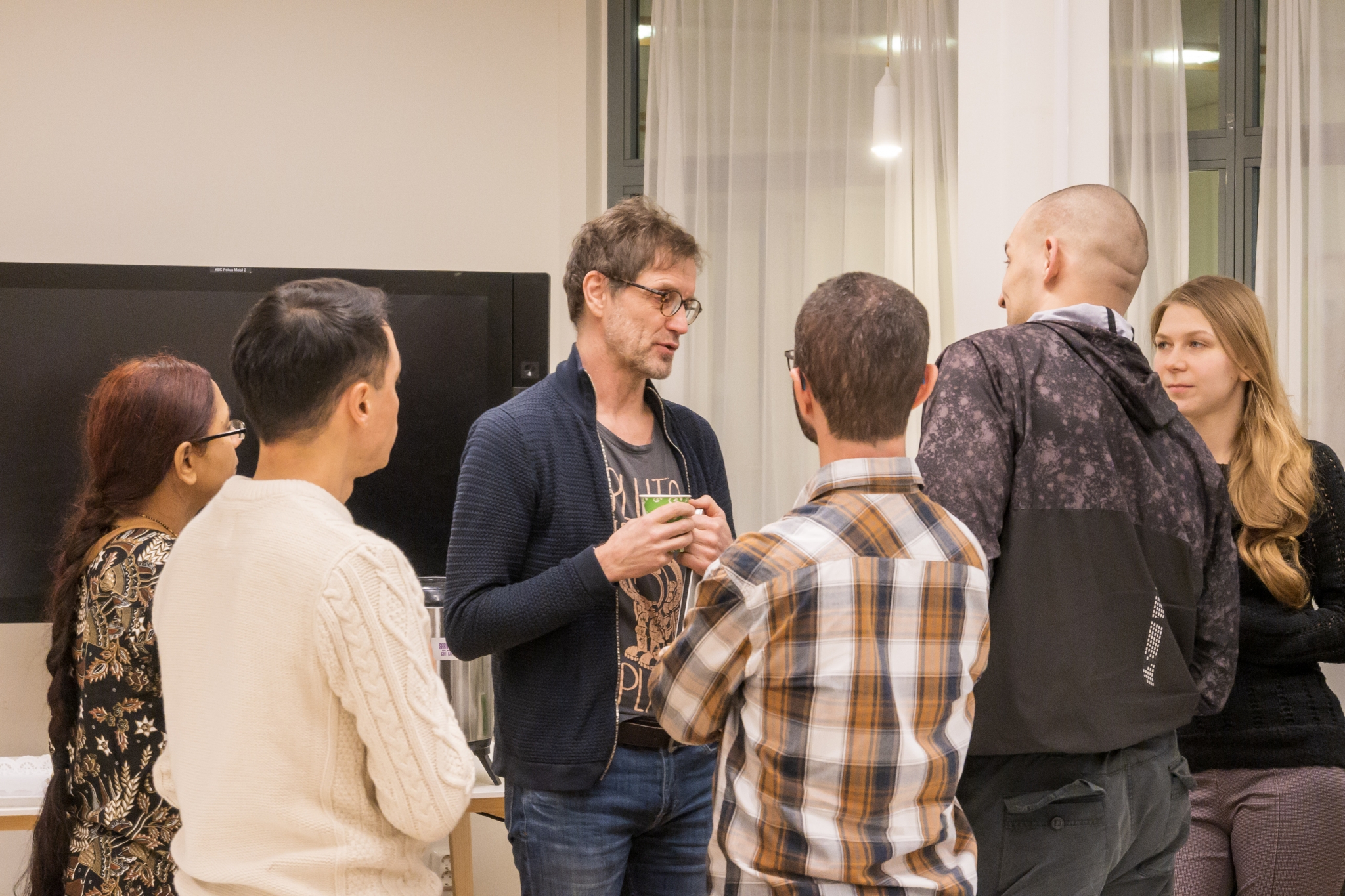Understanding Robots and Sustaining Scientific Innovation with Suna Bensch and Krishna Upadhyayula
January 21, 2020
First Pitcher: Suna Bensch, Senior Lecturer and Thomas Hellström, Professor at Department of Computing Science, Umeå University.
Title: How should we develop understandable robots?
Imagine yourself being approached from the front by a robot carrying a package and flashing green lights and then you hear another robot saying “I am on my way to you” and approaching you (and the other robot) from behind. Robots become increasingly complex and competent and it is crucial that humans understand what robots are up to, not only for human’s safety but also for efficient human-robot interaction. The term “understandable robots” refers to making the actions and intentions of robots understandable (or explainable) to humans. Up to now we have focused on making humans understandable for robots. We use machine learning algorithms and can successfully answer questions like: What emotion does the human have? What intention does the human have? The focus now is making robots understandable for humans.
The Questions:
Should we (or can we) use machine learning algorithms to try to answer questions like: What plan or intention does the robot have? What are the benefits and drawbacks?
What does it mean to understand a robot? Is it more than understanding the robot’s intentions and plans?
What are the consequences of non-understandable robots (or machines)?
Title: How to Ensure Sustainable Performance of Game Changing Innovative Concepts Developed at Universities.
Academic researchers perform exciting research on different concepts, much of which will eventually lead to potentially commercializable technologies in the future. The discoveries that come from this research can be called game changing innovations (GCI).
Krishna and his colleagues are developing a framework to analyze the sustainability performance of emerging innovation concepts in their early stages. This will create a platform for making an innovation sustainable when scaled up to a pilot level and eventually commercialized.
They developed a four step framework to generate sustainability performance metrics for GCIs using life cycle assessment (LCA):
(1) conduct life cycle assessment (LCA) to evaluate environmental performance of the GCI and simultaneously reduce uncertainties of underlying data and technological readiness;
(2) compare LCA results of the GCI with existing market incumbent solutions;
(3) factor LCA results into investment evaluation methods; and
(4) transform LCA results into indicators to reflect sustainability performance of the GCI.
By using the above framework, two objectives can be accomplished: (a) generate sustainability metrics for multiple industrial sectors that can be used by investors; and (b) transform in house sustainable research concepts into potentially commercializable technologies. The principal intent behind our proposed framework is to assist the commercialization process of academic research concepts which can bring a higher sustainable value to the market and society.
Krishna’s question:
How can the sustainability team at the Chemistry department collaborate with experimental researchers to perform sustainability assessments of their innovations?

